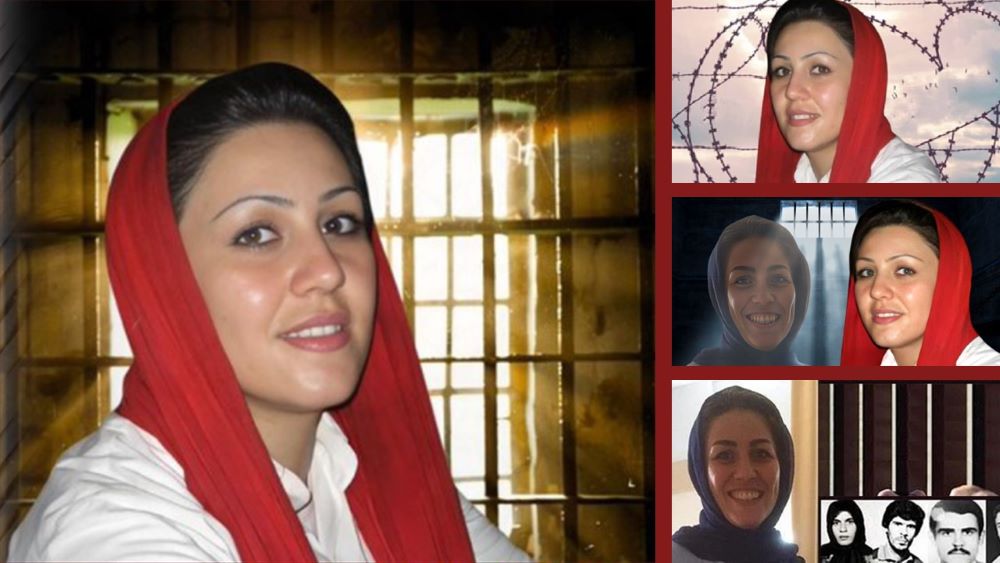
Maryam Akbari Monfared, a prominent political prisoner in Iran, has become a symbol of resilience and the quest for justice following the tragic events of the 1988 massacre of political prisoners. After spending 15 years in Iranian prisons, she was expected to be released on October 12, 2024. However, her release was thwarted by an additional two-year sentence imposed on dubious charges, highlighting the Iranian regime’s ongoing repression of dissent and its efforts to silence voices advocating for accountability.
The Justice for Victims of the 1988 Massacre in Iran (JVMI) emphasizes her case as emblematic of the broader struggle for human rights within the country. A recent article on their website underscores her unwavering spirit and the urgent need for international intervention to secure her release and address the injustices faced by political prisoners in Iran.
Maryam Akbari Monfared was arrested on December 31, 2009, following anti-government protests. Her family remained unaware of her situation for five months. During her first 43 days in detention, she endured solitary confinement, severe interrogations, and was denied legal representation.
In May 2010, Judge Abolghassem Salavati, known for his harsh sentences, convicted her of “enmity against God” (Moharebeh) and sentenced her to 15 years in prison. This charge was based on alleged “membership in the People’s Mojahedin Organization of Iran (PMOI/MEK),” which she has consistently denied. Her conviction relied solely on phone calls to relatives who are PMOI members and a single visit to them in Iraq. She was never provided with a detailed judgment explaining the evidence or legal reasoning behind her conviction.
During the trial, the judge reportedly stated that she was being punished for the actions of her siblings associated with the PMOI. Her appeals were dismissed without explanation, and in August 2010, Iran’s Supreme Court upheld her sentence.
On October 18, 2016, Akbari Monfared demonstrated remarkable bravery by filing an official complaint from prison demanding an investigation into the execution of her siblings during the 1988 massacre. In retaliation for her pursuit of accountability, she has faced increased pressure while incarcerated, including denial of medical treatment and visitation rights.
On March 9, 2021, she was abruptly transferred from Evin Prison to Semnan Prison without any legal justification. In Semnan Prison, she encountered worsening conditions and increased restrictions on herself and her family.
In a poignant letter written from prison in 2023, Maryam Akbari reflected on her separation from her children: “As of December 29, 2022, thirteen years have passed since I was separated from my 4-year-old Sarah and my two 12-year-old daughters.” She expressed the emotional toll of being taken from her family without a chance to say goodbye.
On July 1, 2023, she was summoned to Evin Courthouse and charged with five new offenses related to open letters and reports smuggled out of prison. These included “propaganda against the state” and “insulting the Supreme Leader,” resulting in an additional year in prison. On August 27, 2023, Branch 101 of the Semnan Criminal Court sentenced Akbari Monfared in absentia to two more years in prison and a fine for “publishing lies on social media,” based on articles of the Cyber Crimes Law.
Born in 1975 and a mother of three daughters, Akbari Monfared has not been granted a single day of furlough during her entire imprisonment. Her siblings Roqieh and Abdolreza were executed during the 1988 massacre; two other brothers were executed in earlier years.
Maryam Akbari Monfared is widely respected among Iranian communities for her resilience as a political prisoner. She has remained steadfast in her cause for justice: “We can feel the scent of spring in Evin,” she wrote previously. “The spring of freedom is on its way.… Spring will come.”
In July 2024, the UN Special Rapporteur on human rights in Iran highlighted Akbari Monfared’s case as indicative of the lengths to which Iranian authorities will go to silence those seeking justice for victims of past atrocities. The Justice for Victims of the 1988 Massacre in Iran (JVMI) has repeatedly called for urgent United Nations intervention to end Maryam Akbari Monfared’s unlawful detention. This revised version aims to enhance clarity while maintaining emotional depth and coherence throughout Maryam Akbari Monfared’s story.